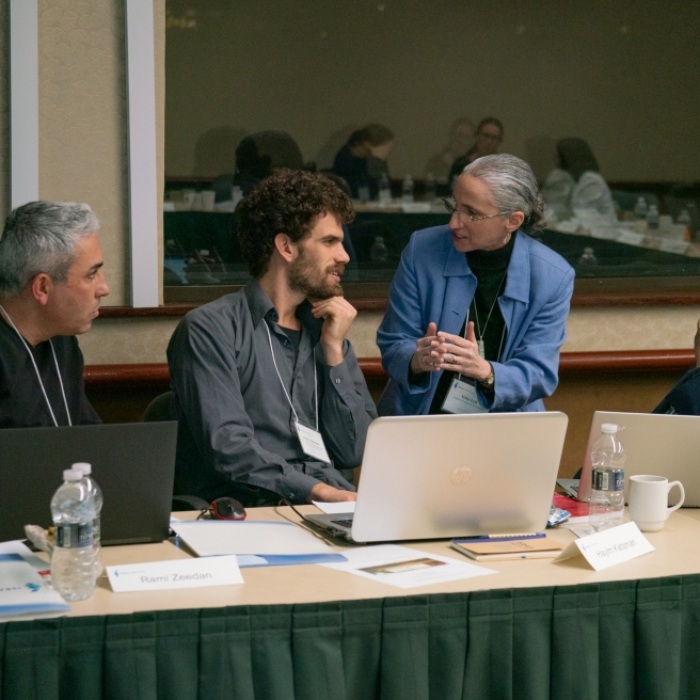The agenda includes instruction in the latest innovations in pedagogy; workshop time to revise or design a state-of-the-art syllabus about Israel; discussions about the challenges of teaching about Israel; and opportunities to share ideas and best practices.
Participants will come away with the ability to design and deliver courses that employ student-centered teaching, backward design and alignment, formative and summative assessments, Bloom’s taxonomy, authentic assignments, student engagement, and effective lectures.
Center directors, faculty, post-docs, and doctoral candidates who teach or plan to teach about Israel and who are based in the United States are invited to apply.
- Eligibility
- Workshop Logistics
- How to Apply
Teaching with Impact is open to:
1) University chairs or program directors based in the United States who teach about Israel or who are adding new courses about Israel to their regular rotations;
2) Tenured, tenure-track, or contract faculty based in the United States who teach about Israel or who are adding new courses about Israel to their teaching portfolios;
3) Postdoctoral fellows based in the United States who are pursuing a research agenda about Israel; and
4) Doctoral students based in the United States who are conducting research on Israel.
Teaching With Impact is an intense, hands-on, in-person professional workshop held in the United States that runs from noon on the first day through though noon on the third day. It includes two nights in a hotel.
Participants should bring a laptop computer and either an existing syllabus to improve or a course concept around which to build a new syllabus.
The Institute covers economy transportation to and from the workshop within North America, lodging, and food during the workshop.
Participants must fully be vaccinated for COVID-19. Unless you are a nursing mother, please do not bring family with you.
To be considered for Teaching With Impact, you must complete the online application that asks questions about you, your university, and the course you want to work on during the workshop.
The application also requires:
- A high-resolution headshot (300 ppi);
- A short bio; and
- An academic curriculum vitae (CV).
Following the application deadline, the Institute will contact you if you are accepted into the program.

